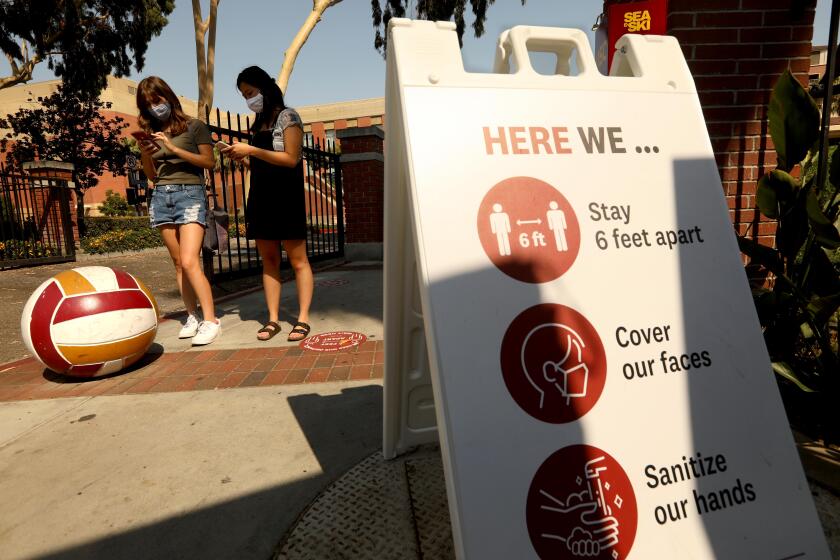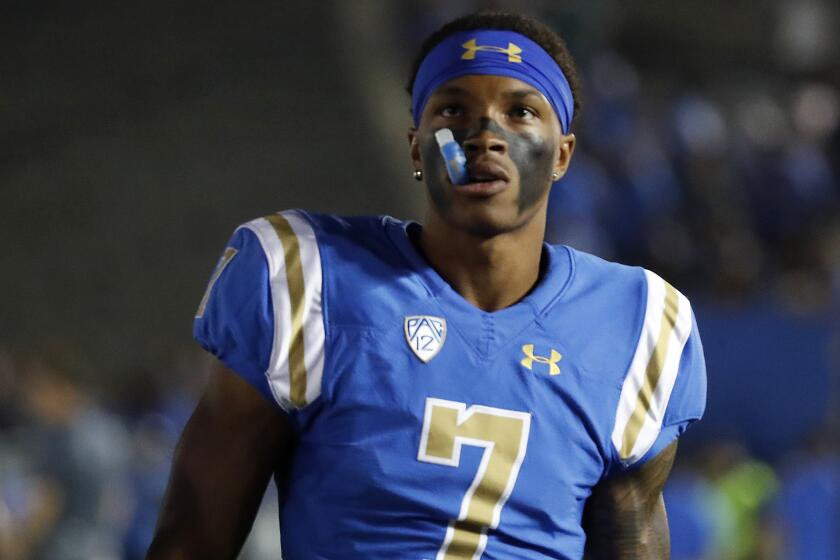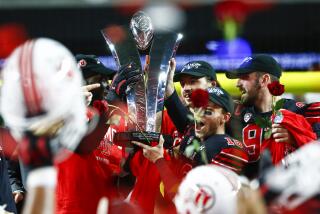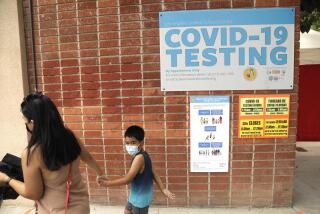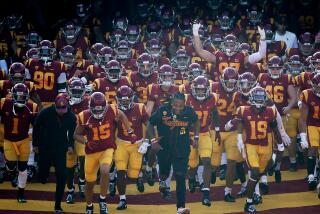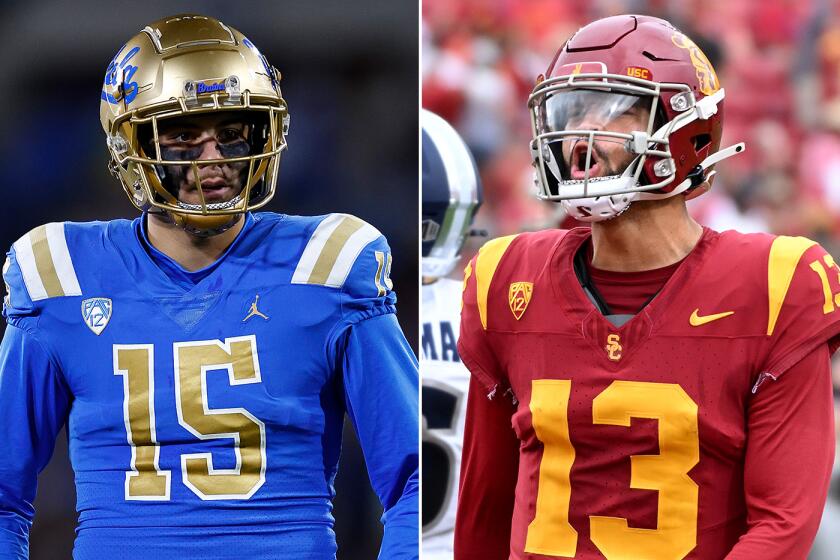Pac-12 hopes rapid coronavirus testing could bring back college football sooner
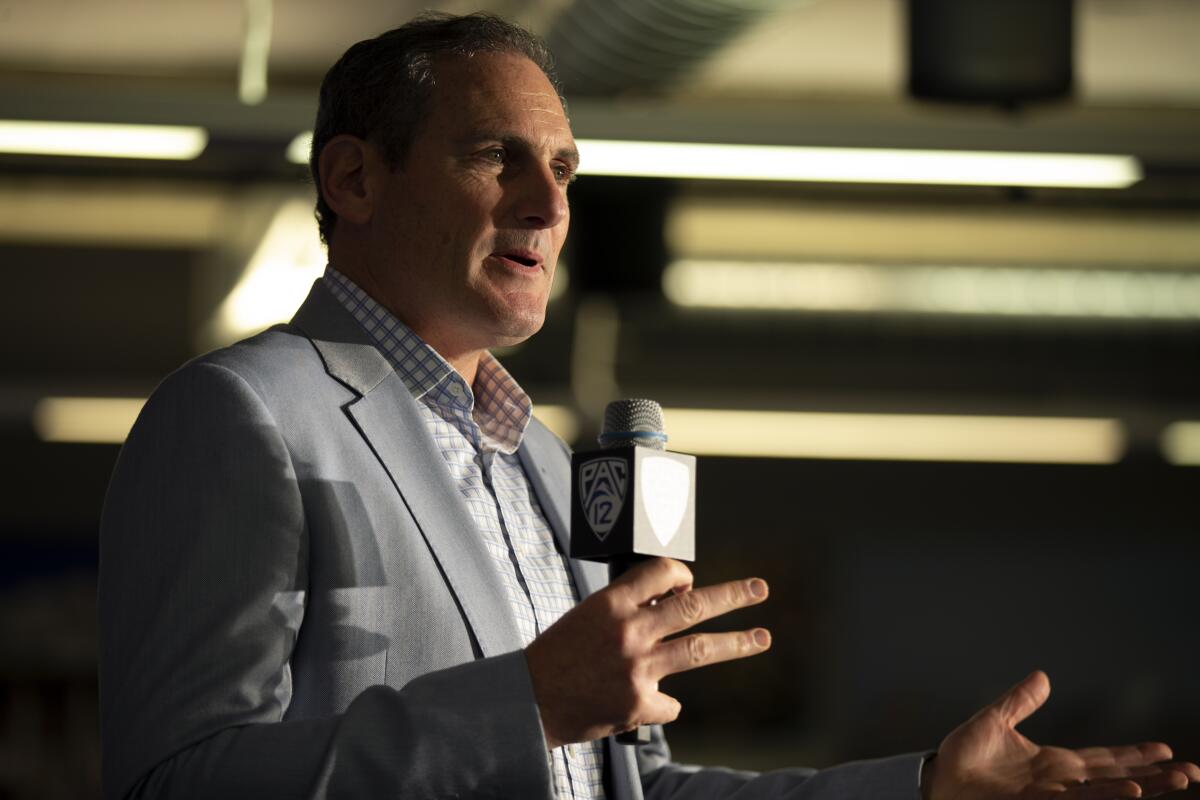
When the Pac-12 voted unanimously to delay football and all other fall sports until the spring, a lack of rapid-response testing for the novel coronavirus was central to the conference’s decision.
Less than a month later, a major testing breakthrough may have quelled those concerns, leaving the door open for a potential return to Pac-12 sports sooner than initially expected.
The Pac-12 announced Thursday that it will provide daily COVID-19 testing for athletes across the conference, after entering into a partnership with Quidel Corp., a diagnostic health care manufacturer of FDA-approved rapid tests. Those tests, according to Pac-12 Commissioner Larry Scott, would allow for results to be read within 15 minutes, enabling officials to know “every day, before every athletic practice or game that everyone participating tested negative for COVID-19.”
Such immediate access, Scott said, is “simply game-changing.”
“It’s a major step for the return of safe sports competition in the Pac-12,” he added.
Workouts for football and men’s water polo will remain on pause at USC until at least after Labor Day weekend, after one additional athlete tested positive for COVID-19 in the latest round of testing.
ButScott also warned that a return to competition involves several other considerations, including approval from state health officials. Six Pac-12 schools, including USC and UCLA, currently don’t have approval to return to contact practice, and as such, Scott was hesitant to offer more than a faint suggestion of a timeline to return, allowing only that he’s now “hopeful” there could be a pathway for Pac-12 sports to begin before Jan. 1.
“We’ve gone about return-to-play in a very measured and thoughtful way,” Scott said. “[We’ve said] all along we’re going to let the data and the science drive us and that we’re going to have to have a high degree of confidence that by returning to play, we’re not encouraging the spread and putting student-athletes at higher risk as a result of that competition. This ability to have daily testing with immediate results is a huge step forward for us.”
Those rapid tests should be accessible by early October, Scott said, with Quidel planning to distribute its Sofia 2 testing machines to each Pac-12 member school by the end of this month. The cost of those tests remains “confidential,” but will be covered by member schools, he said.
How the conference will proceed, once its new rapid-testing protocols are in place, remains to be seen. Scott reiterated Thursday that it would take at least six weeks of ramp-up before Pac-12 schools could safely start a season, which suggests that a mid-November start — or perhaps a Thanksgiving weekend kick-off — may be the earliest possible window to open a season this fall.
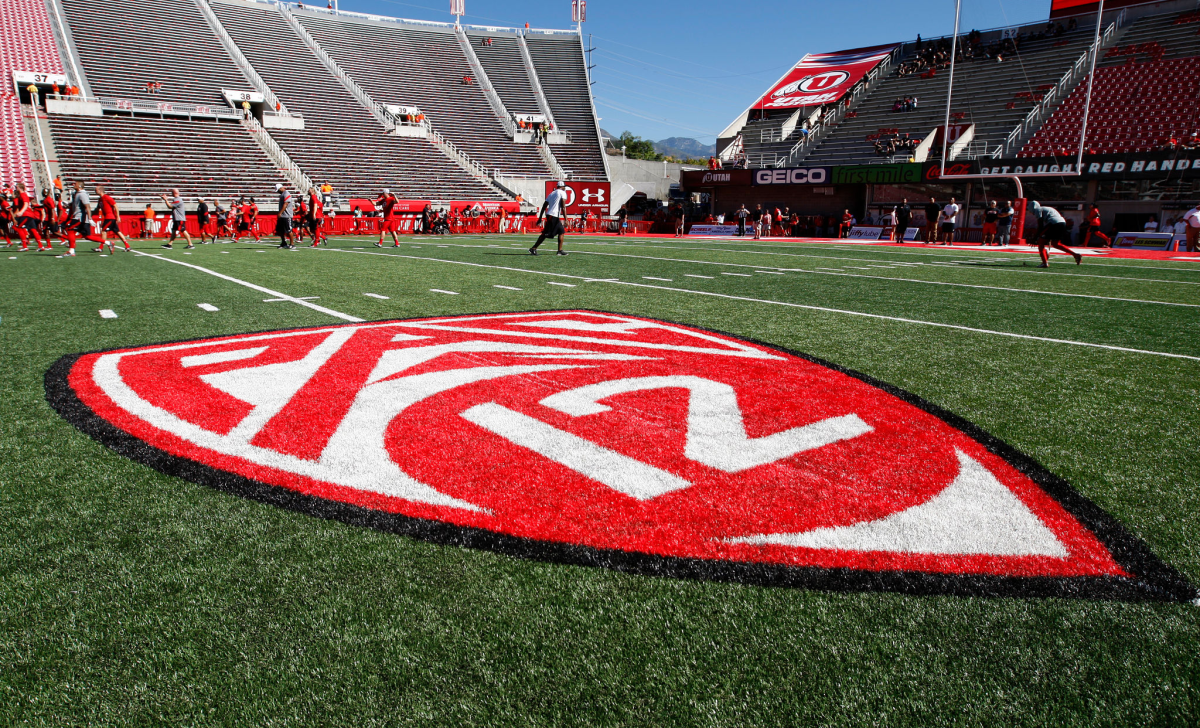
But any such start would presume the cooperation of public health officials and a reduced level of community spread in both California and Oregon, where restrictions are still stringent.
“Some of this is still outside of our control,” Scott noted.
An earlier-than-expected start would also ideally include the Big Ten, with whom Scott said he has been in regular contact. The Pac-12 sees it as “a high priority” to align with the Big Ten on any new football schedule, be it this fall or in the spring.
Both conferences have been under fire since early last month, when the Pac-12 followed the Big Ten’s lead in postponing the season. As the rest of the Power Five has continued to press on with a fall start, criticism of the two conference’s respective decisions has been constant ever since, with coaches, players and parents questioning the reasoning behind it.
A dearth of access to daily, rapid testing was a particularly pressing reason for that postponement, one that Scott said he didn’t think would be solved until at least November.
With such testing protocols now within reach much faster than expected, Scott and two members of the Pac-12 medical advisory board still defended the conference’s initial decision to postpone.
Most of UCLA’s fall sports teams have commenced limited outdoor coach-led practices. The football team is scheduled to start these practices Sept. 7.
“The opportunity to be able to test daily helps mitigate several of the concerns we had prior,” said Dr. Doug Aukerman, the senior associate athletic director of sports medicine at Oregon State. “But at that point in time, we didn’t have the ability to do point-of-care, daily testing and didn’t see that on the horizon. This is clearly a new development.”
Added Dr. Kim Harmon of Washington, “I really think the Pac-12 went about this the right way, keeping science in mind.”
Several concerns remain. Harmon explained that the Pac-12 still doesn’t have a grip on whether athletes recovering from COVID-19 are at an elevated risk of heart inflammation known as myocarditis. Penn State’s director of sports medicine drew some heat Thursday for suggesting that one-third of Big Ten athletes who recovered from the virus showed some form of myocarditis — an assertion he later recanted in a statement.
An answer to those questions could be on the horizon. The Pac-12 has partnered with Harvard on a research study to collect all available data on cardiac impact of the virus. Preliminary results should be available “within a month or two,” Harmon said.
“It is a dynamic situation, a step at a time,” Scott said. “But based on what we knew in mid-August, I think everyone is confident in the decision we made.”
More to Read
Get our high school sports newsletter
Prep Rally is devoted to the SoCal high school sports experience, bringing you scores, stories and a behind-the-scenes look at what makes prep sports so popular.
You may occasionally receive promotional content from the Los Angeles Times.

